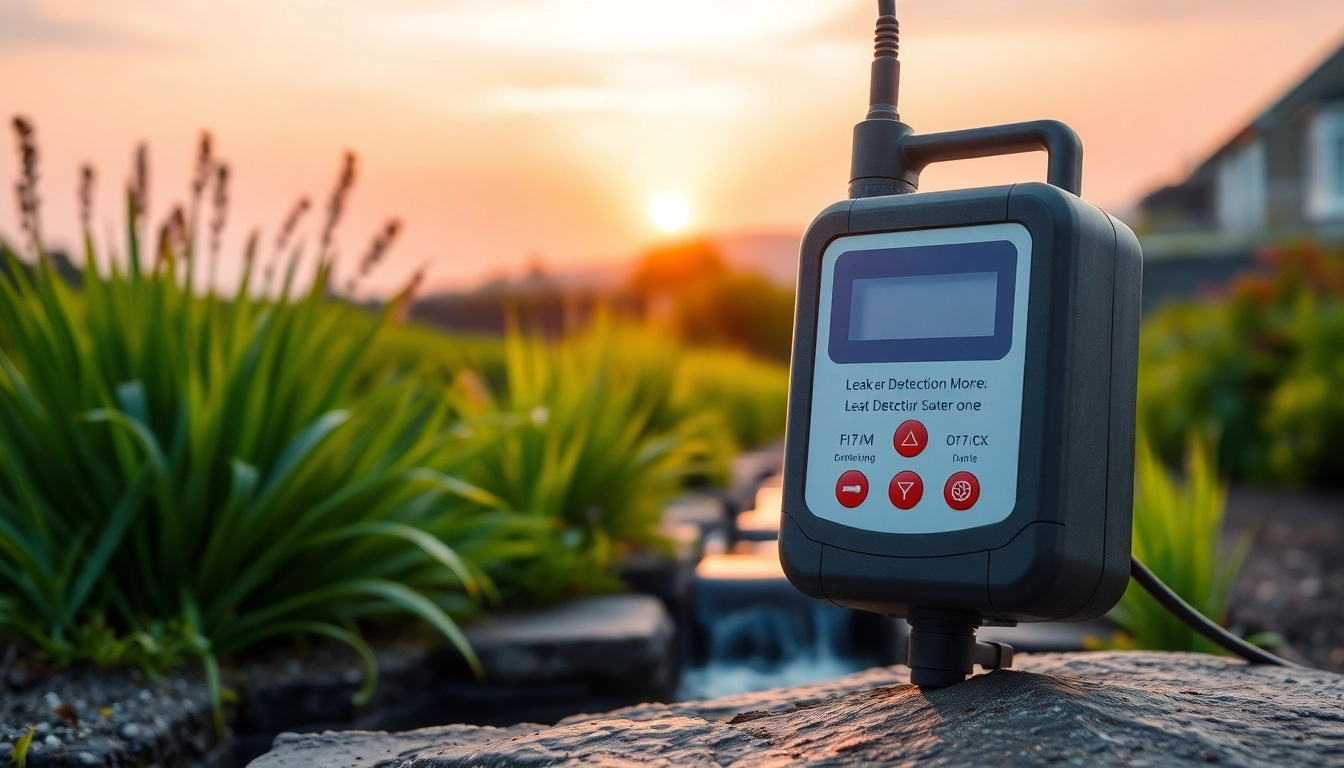Understanding Leak Detection Cornwall
Water damage can create a nightmare for homeowners and business owners alike, causing substantial financial loss and compromising structural integrity. To mitigate such risks, understanding Leak Detection Cornwall is essential. This article explores what leak detection entails, its importance, tools utilized, signs of leaks, advanced methods, and preventive measures that can help manage water-related issues effectively.
What is Leak Detection?
Leak detection refers to the process of identifying leaks within various infrastructures, including residential, commercial, and industrial buildings. It employs various techniques and technologies to locate hidden leaks in plumbing systems, roofs, swimming pools, and other concealed areas. Leak detection services are crucial for preventing water wastage, reducing repair costs, and ensuring the safety of the property. By employing specialized equipment and skilled technicians, leak detection aims for a non-invasive means of finding leaks, thus minimizing damage to the property during the inspection process.
Importance of Early Detection
The significance of early leak detection cannot be overstated. A small leak can progress into a major issue if left unchecked, leading to extensive damage, including:
- Mold Growth: Prolonged exposure to moisture creates a breeding ground for mold, which can impact air quality and lead to health issues.
- Structural Damage: Water can weaken the structural integrity of buildings, leading to costly repairs or even property collapse.
- Increased Utility Bills: Undetected leaks can cause substantial increases in water bills, causing financial burden to homeowners.
By detecting leaks early, homeowners can act proactively, thereby saving time, money, and stress associated with large-scale repairs.
Tools Used in Leak Detection
Several tools and technologies are employed in leak detection, each serving specific purposes. Some widely used methods include:
- Acoustic Devices: These tools listen for the sound of leaking water in pipes, making it easier to locate the leak’s source.
- Thermal Imaging Cameras: These cameras detect temperature variations on surfaces caused by moisture, allowing technicians to identify problem areas.
- Moisture Meters: These devices help measure the moisture content in materials, assisting in pinpointing hidden leaks.
- Gas Leak Detection: In some cases, tracer gases are introduced into plumbing systems to reveal leaks when combined with gas detection technologies.
Common Causes of Water Leaks
Piping Issues and Aging Infrastructure
One of the most common causes of water leaks is deteriorating pipelines. In older homes and buildings, pipes made from outdated materials such as galvanized steel can corrode, crack, and break, leading to leaks. Additionally, shifting soil and extreme temperature changes can put pressure on plumbing systems, resulting in leaks. Regular inspections and prompt replacements are vital in managing this risk.
Environmental Influences
Leakage can also be attributed to environmental factors. Heavy rainfall, flooding, and shifting ground can affect underground pipes, leading to leaks. In coastal regions such as Cornwall, saline soil and erosion can weaken foundations and utility lines, making regular checks essential.
Common Household Problems
Many leaks occur due to household issues, such as:
- Faulty Appliances: Washing machines, dishwashers, and water heaters are common culprits of leaks if not properly maintained.
- Structural Issues: Cracks in walls and foundations can provide avenues for water to infiltrate properties.
- Improper Installation: Poorly installed plumbing can lead to early failures, producing leaks that require immediate attention.
Signs You May Have a Leak
Increased Water Bills
One of the first indicators of a possible leak is an unexpected spike in your water bill. If you consistently notice higher costs without increased usage, it’s time to investigate further.
Visible Water Damage
Water stains on ceilings, walls, or floors are clear signs of potential leaks. Such damage often indicates moisture intrusion that needs prompt attention to prevent mold and structural impairment.
Unusual Sounds in Pipes
Hissing or gurgling sounds emanating from your plumbing system can signal a leak. If you hear these noises, it’s crucial to seek professional assessment to pinpoint the issue.
Advanced Techniques in Leak Detection Cornwall
Non-Destructive Testing Methods
Non-destructive testing (NDT) methods allow leak detection without causing damage to the property. Techniques such as acoustic emission testing can identify leakage by monitoring the stress and strain on pipes, thereby avoiding costly excavation work.
Infrared Thermography
This revolutionary method uses infrared cameras to detect temperature differences on surfaces. When moisture is present, the temperature will differ from surrounding areas, enabling technicians to target potential leaks without intrusive procedures.
Moisture Mapping Technology
Moisture mapping often employs moisture meters to create an image of moisture distribution across a surface. This technique helps identify unseen leaks and assess the extent of water damage, which is vital for informing repair strategies.
Preventive Measures for Homeowners
Regular Maintenance Practices
Homeowners should include plumbing checks as part of their routine property maintenance. Inspections by certified leak detection specialists can catch issues before they escalate, saving significant costs over time.
Importance of Seasonal Check-Ups
Seasonal conditions, such as winter freezes or spring thaws, can affect plumbing systems. Regular seasonal check-ups can help detect and address vulnerabilities induced by environmental changes.
Tips for Homeowners in Cornwall
Residents of Cornwall can take specific measures tailored to their environment:
- Insulate Pipes: Prevent freezing and cracking by properly insulating plumbing pipes, particularly those in exterior walls or unheated areas.
- Monitor Humidity Levels: Maintain adequate indoor humidity to prevent condensation that can lead to leaks.
- Stay Informed: Educate yourself about common leak causes in your area and stay vigilant for signs of water damage.










